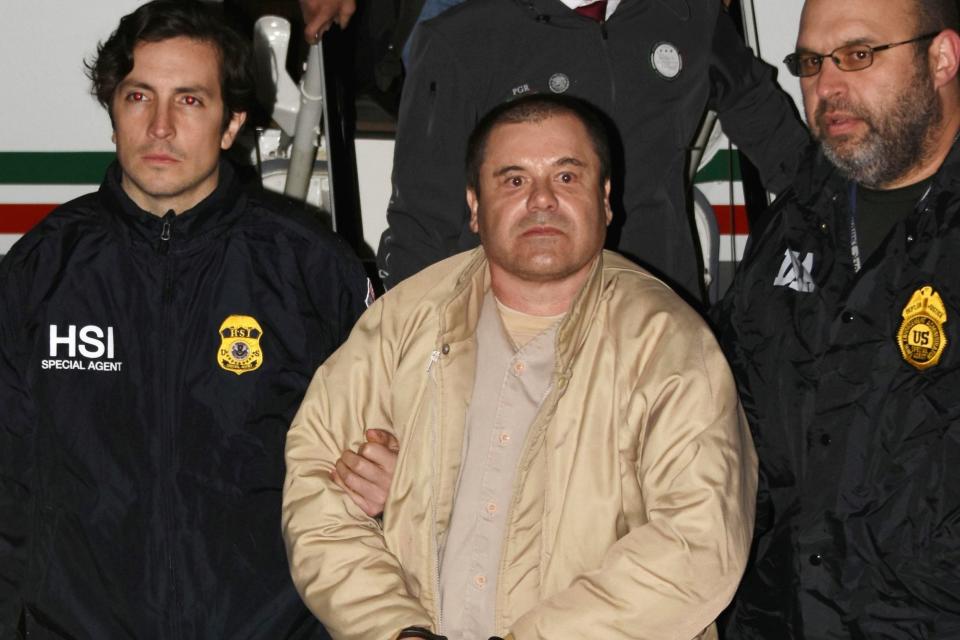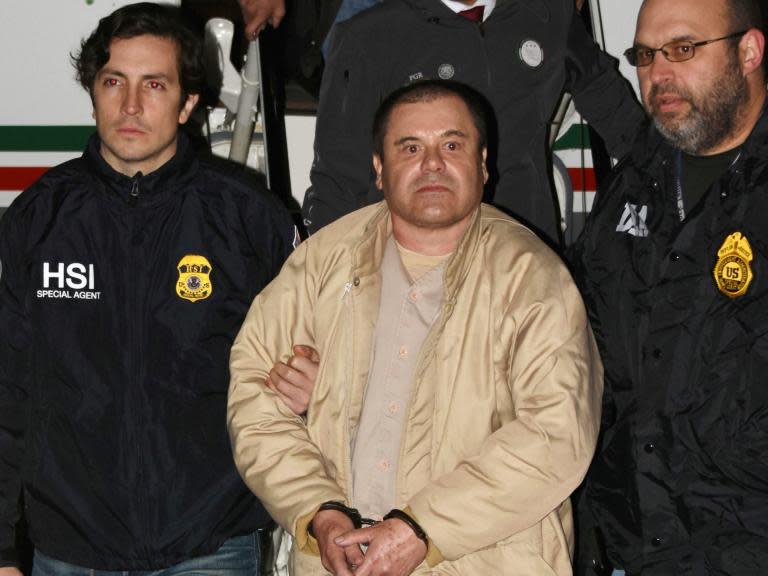The El Chapo trial should give some drug users pause for thought
The trial of Joaquin “El Chapo” Guzman took on that soap opera quality that highly publicised court cases tend to do. We, the onlookers, follow every stage, every decision and await the final result on tenterhooks – often forgetting about the victims at the heart of the proceedings.
Many of the details that emerged during El Chapo’s trial were lurid, sometimes graphic, and sounded like they could have been lifted right out of a TV show. The jury heard of the drug lord’s enemies being murdered, even buried alive, and his two escapes from prison; even the career criminal’s romantic life was put on display, with his wife and his mistress providing plenty of fodder for the tabloid press.
But it’s not a soap, it’s not a telenovela, and while the story of El Chapo’s life may now be the subject of a Netflix series, all those crimes he committed and people he harmed were real.
What will be interesting to see in the wake of his conviction is whether the widespread interest in the case might prompt some self-reflection among the people who helped to make him the man he is.
El Chapo made his millions from a narcotics empire that spread far beyond his native Mexico, with customers all over the world. That includes the young professional, casual user crowd, and it even encompasses the people who might feel they deserve a treat because they lead such exemplary lives in other ways.
There is a certain hypocrisy that runs deep in some social groups wherein people might live their lives to a very strict moral code – eating a certain way, railing against injustice in their spare time, often even working in roles specifically aimed at helping people – but have no problem playing a part in the destructive global drug market.
I know people who wrestle with the question of whether or not to adhere to a vegan diet, weighing up the pros and cons of that lifestyle and how much damage their choice might do to the planet. The very same people will spend next to no time thinking about whether to have a few lines on a Friday night.
This is a problem in many societies of course, and has been for some time, but the issue of cocaine use and its connected problems is a growing one in the UK. Police have warned of a boom in sales due to lower prices, more and more people are admitting to using the drug, and the number of deaths from cocaine use in England and Wales hit a record high in 2017.
Meanwhile, data shows that cocaine use among the UK’s richer households is on the rise, but declining among lower income households.
The link has long been drawn between middle-class drug users and the violence that goes hand-in-hand with the illicit drugs trade. London mayor Sadiq Khan, the Met Police commissioner Cressida Dick, and David Gauke, the justice secretary, are just a few of the senior figures to put the blame for street violence in the UK on “middle class people that take cocaine at a dinner party”.
To be fair, it would be setting an impossibly high standard to expect that someone who uses only fair trade products be blameless in all other aspects of their life. A lot of people are concerned about climate change, do their best to play their part in reducing damage to the planet, but still can’t quite cut that long-haul travel habit.
However, it’s rare that a passion for far-flung holidays can be linked directly to violence, torture and murder. The details that emerged from El Chapo’s hearing over recent months made stark the connection between a quick pick-me-up in the loos of a Soho pub and the human cost that creates on our own doorsteps.
And while it’s true that there is a lot more to the UK’s street violence issue than the appetite for cocaine at “middle-class parties”, there is no getting away from the fact that coke makes its way to any user through a chain of human misery. Now that we’ve all heard the gory details of how El Chapo made his operation so successful, that’s truer than ever.


